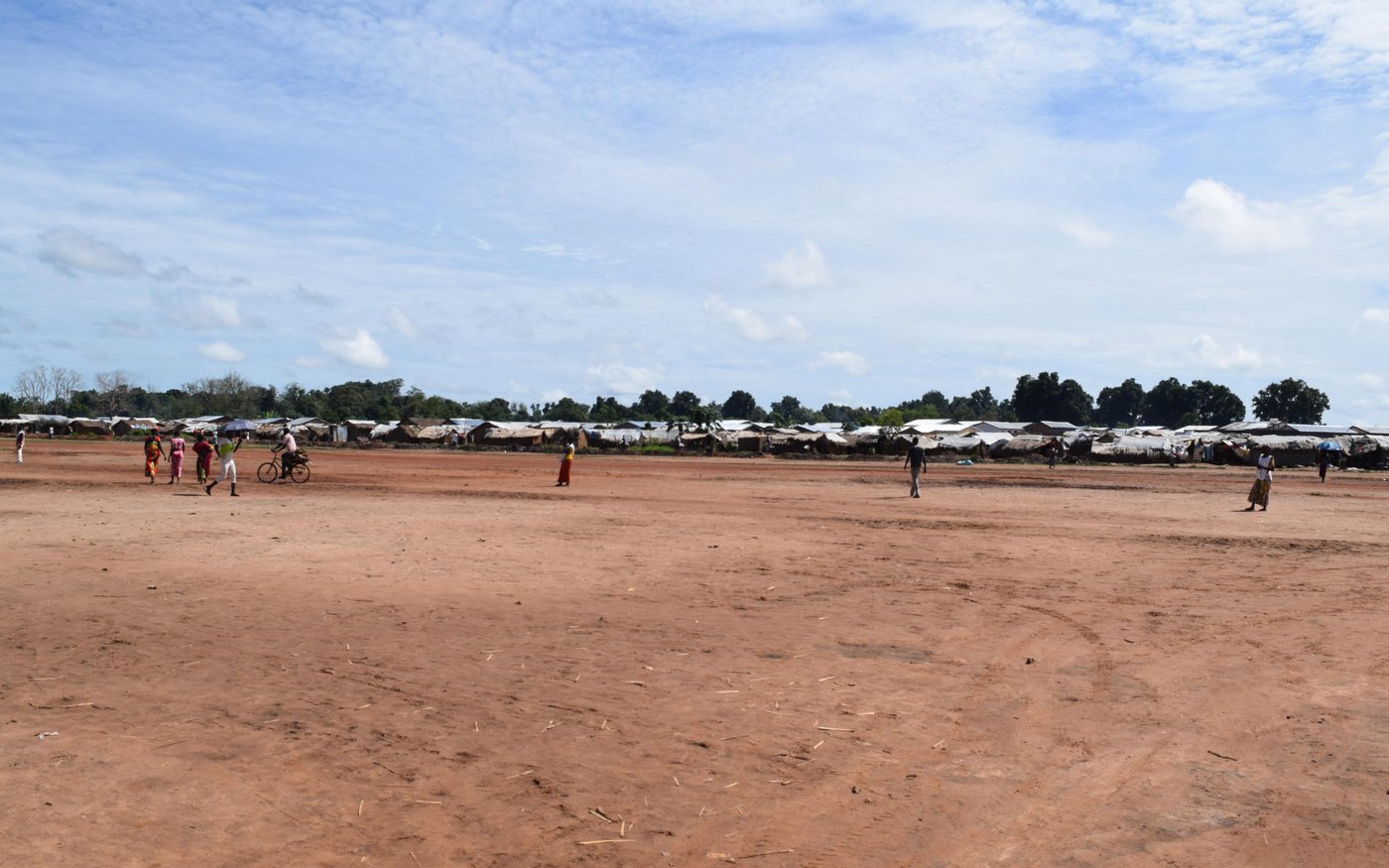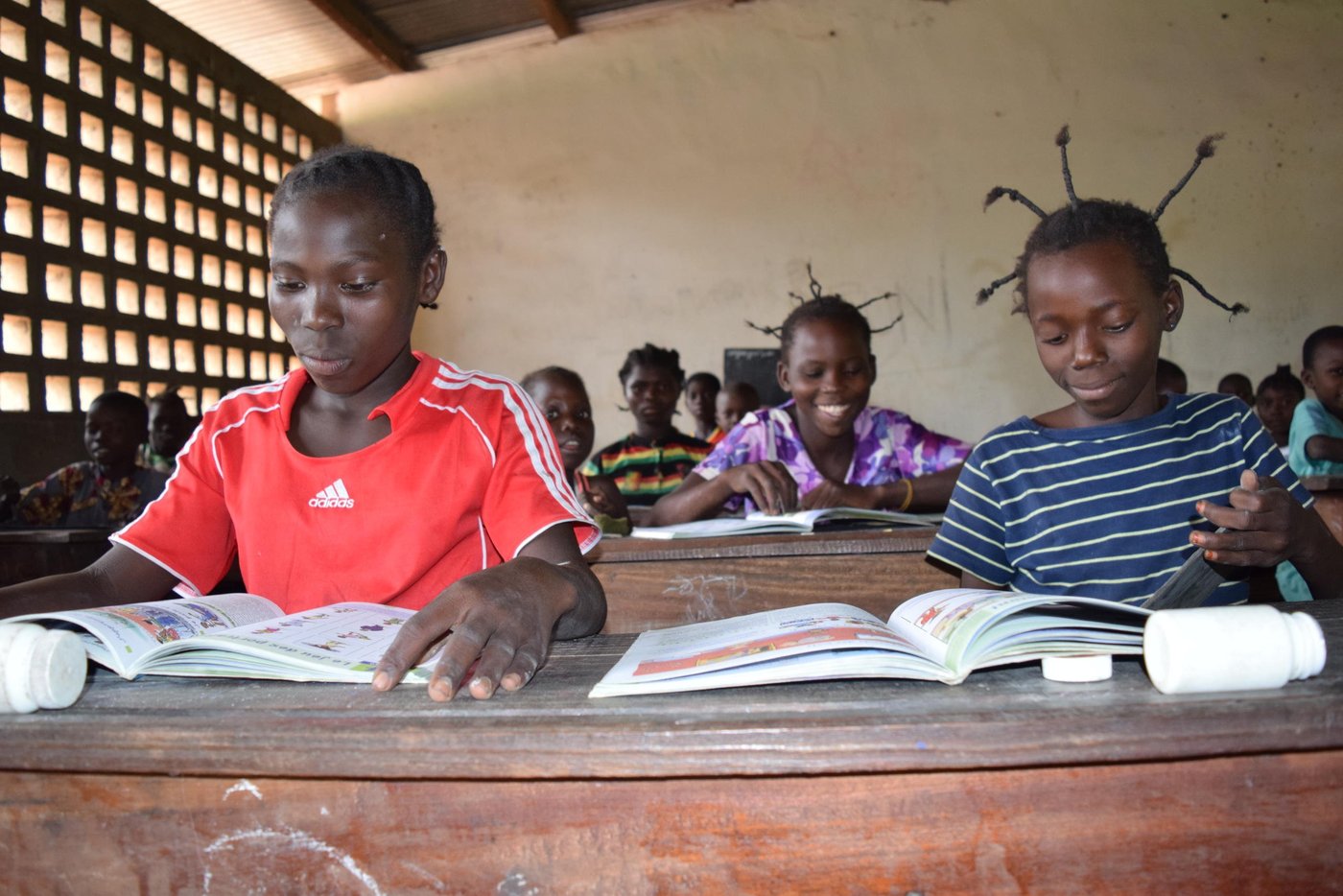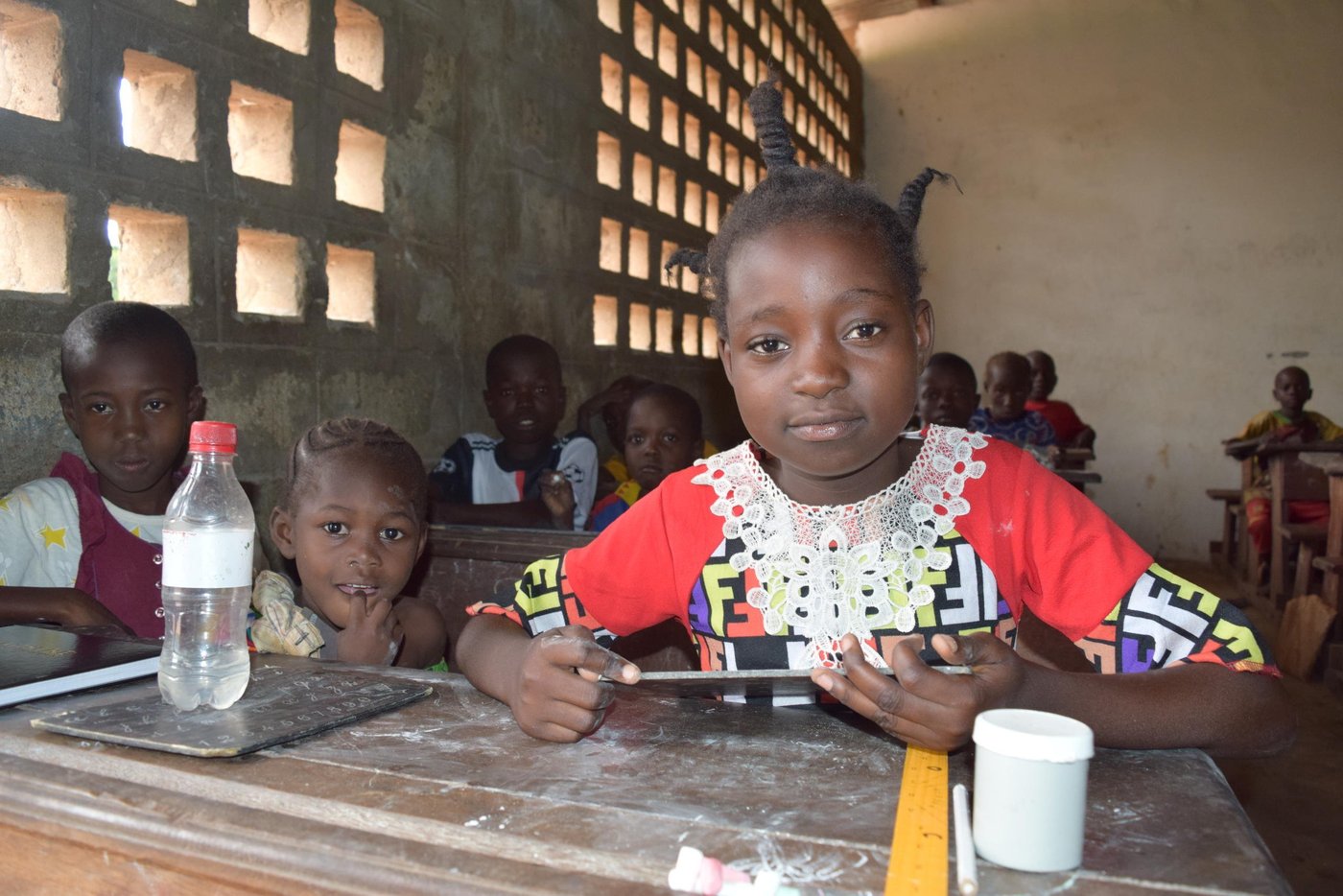Océane, 10, is one of the many children who never got the chance to even start school. She was only three when the violence broke out. Since 2014, she has lived in a displacement site outside the local UN Peacekeeping Mission’s headquarters in the central-northern city of Kaga-Bandoro. Her family fled here for safety. Today, Océane, her parents and six siblings have settled in this site along with 12,400 people still afraid to return to their homes.
Unable to attend school
Though Océane’s family tried their best to rebuild their lives at the site, they did not have enough money for her to start school.
“My father could never afford to pay for my schooling, so I spent all my time at home, helping my mother with chores," says Océane. She helped her mother sell doughnuts, cook and clean at the displacement site. She gave up on her dreams of being able to read or write and never thought she could one day be enrolled in the local school.

Accelerated learning
Education is a fundamental human right for all children and youth. The Norwegian Refugee Council (NRC) is responding to the lack of opportunities for many out-of-school children in CAR. In March 2019, with the support of Education Cannot Wait, we launched our Accelerated Learning Programme in Kaga-Bandoro.
The nine-month programme offered 420 children affected by conflict the opportunity to attend school at last. Océane and her classmates were able to catch up on all the learning they had missed. They learnt the basics of reading and writing and took an evaluative exam at the end of the programme. When students pass this exam, they are able to enrol in the local primary school.
Océane is so happy to have the opportunity to join this programme. “I am really happy with my classes. I do not have to sell any more doughnuts. Now, I can read and write the alphabet. My favourite classes are French and maths,” she says.
Every day, Océane gets up at 6 am and walks 30 minutes to get to her classes. In the afternoon, she does her homework and reads.

Océane's dream
Like most families in their situation, Océane’s family was not able to afford the books, pencils and other tools she needed for her classes. So, as part of the Accelerated Learning Programme, Océane and her fellow students received school kits containing notebooks, pencils, slates and school bags.
“I like going to school,” she says. “I am very happy to have received this school kit, because now I have everything I need to learn new things every day.”
Océane is full of hope and dreams that one day she will become a nurse. “I want to study to the highest level and have a degree in medicine. Then I could take care of the children in Kaga-Bandoro.”
Océane’s hard work is now paying off. After completing the programme, she passed the exam and is now attending formal schooling at the local primary school.
“Every child should have the possibility to go to school and forget the war they have lived through,” she concludes.


